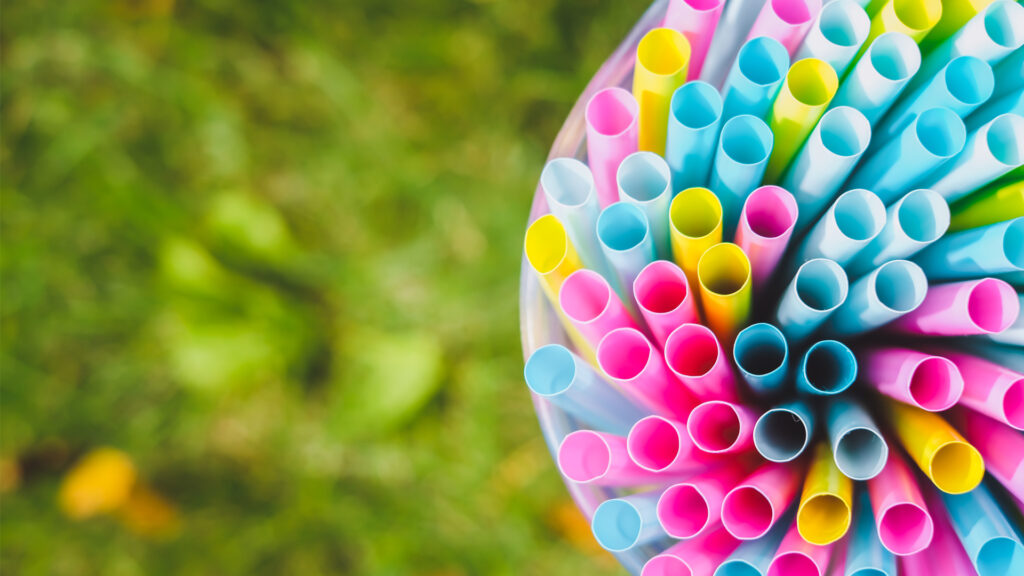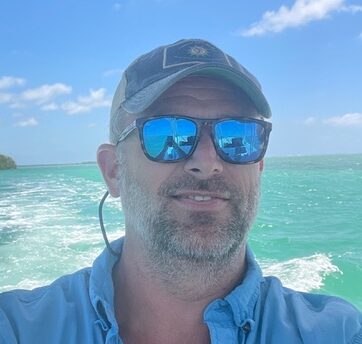By Shawn Martin, Surfrider Foundation Florida Keys Chapter
Florida has a plastic problem. It’s overwhelming local landfills, clogging our beaches and choking our oceans and waterways.
Decades-long state preemption on the regulation of most single-use plastic items has made it difficult for coastal communities to make their own decisions about the types of items they want to use (or not). As a conservationist, I am intrigued when new products emerge claiming to be ocean-safe. As a marine biologist, I am cautious.

Talking points, such as how “environmentally friendly” straws biodegrade in a marine environment, how compostable they are and how the products have been accepted and used successfully by various industries, are very convincing. In fact, some local governments, including the Key West City Commission, have even amended “biodegradable” into their own ordinances banning retailers from distributing or selling plastic straws.
This all sounds great, right? No more soggy paper straws and the turtles are still safe. Well, maybe not.
While it’s true that there has been a lot of research into bioplastics and several certifications exist to indicate how quickly and efficiently a product can break down, they often still miss the mark for the safety of our ocean. For example, the testing for certification as compostable or marine degradable is done in laboratory conditions, which are not typically replicated in the real world. Many of these “certified” items will not actually break down as fully or quickly as we are led to believe, and still add to our landfills as many communities lack proper infrastructure to compost biodegradables effectively.
There are also many upstream impacts to be aware of. For example, some bioplastics are made from polyhydroxyalkanoate, a biopolymer derived from canola oil. There are real environmental concerns about the large-scale growing of rapeseed used to make canola oil, especially when we talk about the toxic chemical solvents often used to extract the oil. But that’s just it: It isn’t talked about. And why not? This is a reality of their production with real impacts, and that should be considered.
Then, looking downstream, we find issues around the proper disposal of these products that continue to put the onus of navigating confusing and often misleading claims of compostability on the consumer. If an item is supposed to be compostable, it should be disposed of in an industrial composting facility, right?
Well, there are a couple of issues here. First, these facilities are rare in Florida, so items just end up in the trash. Worse still, as noted above, bioplastics often do not break down as efficiently as they suggest, so they end up as more waste in the landfill. In fact, where there are composting facilities, many have stopped taking bioplastic because it contaminates the waste stream, compromising the composting programs and invalidating their environmental benefits.

If this all seems confusing to you, don’t worry, it is. Plastics shouldn’t go into the trash, right? But this one can because it’s a bioplastic, even though it looks, acts and feels like regular plastic? So, can it be recycled? Well, no, it can’t. So, what then do we do with it? It’s hard to know what the right answer is and bioplastic products serve to further perpetuate the confusion around the plastics issue.
Bioplastic products are distracting from real solutions. Shifting from one single-use item to another isn’t the way to solve the plastic crisis. If disposables truly are needed, we should prioritize products made from naturally occurring materials that are nontoxic, such as straws made purely from plants such as hay and bamboo.
For most of us, we want to do what’s best for the environment and the bottom line of businesses. But there’s a better way. Owners and managers of bars and restaurants, I urge you, don’t buy into the hype. You may think you are picking the more sustainable option but most of the time, bioplastic products are more expensive and often act just like plastic in the environment. Despite all the certifications and fancy wording, we simply don’t have enough evidence that bioplastics are a viable solution yet.
So, I urge you, if you truly want to do what’s best for the environment and not waste well-intended money and effort, stay away from bioplastics. Reach out to your local Surfrider chapter and ask about our Ocean Friendly Restaurants program. We’d love to help you truly go green, not just greenwash the issue away.
Find out more about the Ocean Friendly Restaurants program and other issues around bioplastics at floridakeys.surfrider.org/ofr.
Shawn Martin is a founding member of the Florida Keys chapter of the Surfrider Foundation and a current member of its executive committee. He has a master’s degree in marine biology.
If you are interested in submitting an opinion piece to The Invading Sea, email Editor Nathan Crabbe at ncrabbe@fau.edu. Sign up for The Invading Sea newsletter by visiting here.



